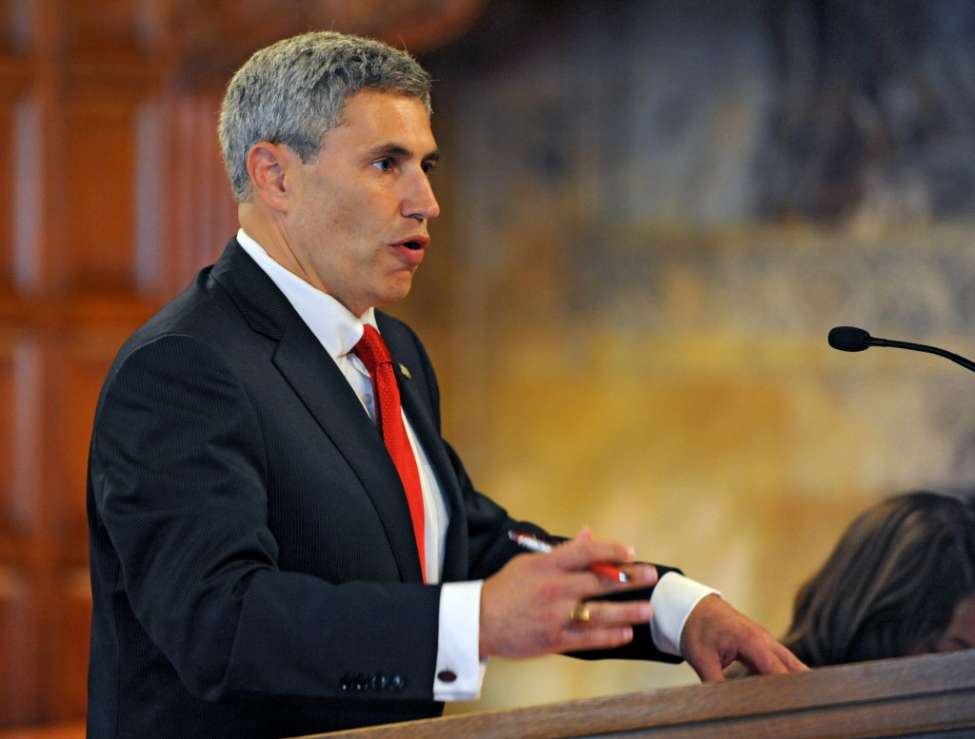A city court judge in upstate New York set bail in a misdemeanor case Wednesday, despite a new state law that eliminates cash bail for most non-violent offenses.
Cohoes City Court Judge Thomas Marcelle immediately stayed his own decision to set bail at $100 cash, allowing the defendant to walk out of court while his lawyers appeal the bail ruling. But the judge’s bail decision effectively sets up a challenge to a law already facing relentless criticism from police and prosecutors around the state.
Marcelle in decision on Monday reported by the Times Union of Albany questioned whether Gov. Andrew Cuomo and state lawmakers impinged on judicial powers with the new law. Marcelle was concerned about his ability to use discretion in a case in which the defendant had missed past court dates.
Assistant Public Defender Angela Kelley said she will argue in county court that Marcelle, as the judge in the case, lacked authority to raise the constitutionality issue.
She said her client Jonathan Johnston could not afford the $100 bail for the unclassified misdemeanor of second-degree aggravated unlicensed operation of a motor vehicle.
“It’s our position that’s why bail reform had to happen in the first place, because our society no longer considers it fair and just for someone to be incarcerated, or pay money bail, on a charge like this,” Kelley said in a phone interview with The Associated Press.
Law enforcement officials have complained for weeks that the new bail law has jeopardized public safety by releasing defendants who go on to commit new crimes. Advocates of the law say critics are distorting its effects.
A spokesman for the state court system had no comment on the judge’s decision.
(AP)












One Response
> Marcelle, as the judge in the case, lacked authority to raise the constitutionality issue
What a weird thing to say. How about the explicit mention in the Constitution itself, where the judge has to take an oath (a Constitutional requirement even on State-judges) and this guy is arguing that the judge cannot fulfill the judge’s own Constitutional oath because the judge lacks authority?
>
The Supremacy Clause of Article VI states:
This Constitution, and the Laws of the United States which shall be made in Pursuance thereof; and all Treaties made, or which shall be made, under the Authority of the United States, shall be the supreme Law of the Land; and the Judges in every State shall be bound thereby, any Thing in the Constitution or Laws of any State to the Contrary notwithstanding. … [A]ll executive and judicial Officers, both of the United States and of the several States, shall be bound by Oath or Affirmation, to support this Constitution.
<